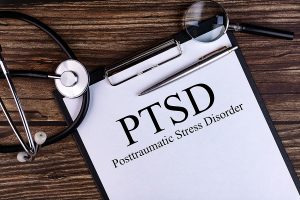Most Common Mental Health Issues Faced By Survivors Of Car Accidents
 Michael Babboni
Car Accidents
Emotional and mental recovery is a crucial aspect of your overall recovery after a car accident. Many victims of auto accidents neglect this aspect, and end up suffering from the effects of the accident years later. Victims of car accidents and their loved ones should be aware of these three most common mental health issues that develop after car accidents on top of the usual emotional distress.
Michael Babboni
Car Accidents
Emotional and mental recovery is a crucial aspect of your overall recovery after a car accident. Many victims of auto accidents neglect this aspect, and end up suffering from the effects of the accident years later. Victims of car accidents and their loved ones should be aware of these three most common mental health issues that develop after car accidents on top of the usual emotional distress.Most Common Mental Health Accidents After A Car Accident
Post-Traumatic Stress Disorder (PTSD)
PTSD is a condition that often develops after a traumatic experience. This is why you may commonly hear of PTSD in association with soldiers and veterans. Survivors of car accidents are also prone to PTSD because a car accident is also a traumatic experience. PTSD may also come with suicidal thoughts.
PTSD is associated with the following symptoms:
• Intense recurring flashbacks
• Avoiding places, people, or activities that remind them of the accident
• Anger management issues
• Emotional numbness
• Isolation or trouble connecting with others
• Paranoia or hyper-vigilance
Anxiety
Anxiety may develop after a car crash. This may be mild to moderate and last for a few weeks after the accident. However, severe anxiety may also persist for months after the accident. Anxiety is a debilitating condition that could prevent a person from living their life as usual.
People with anxiety may experience one or more of the following symptoms:
• Constant nervousness
• Excessive worries
• Restlessness
• Fatigue
• Difficulty concentrating
• Panic attacks
• Irritability
• Insomnia or other sleep disorders
• Nausea and headaches
Major Depressive Disorder
Major depressive disorder is another common effect of car accidents on a survivor’s mental health. This condition is usually associated with pain and injuries sustained after the auto accident, which often prevent the individual from proceeding with their usual life and working. People with depression may feel withdrawn, as well as have suicidal thoughts which need to be addressed by a professional immediately.
Signs and symptoms that someone may be suffering from major depressive disorder are:
• Lack of energy
• Feelings of worthlessness
• Suicidal ideation or suicidal thoughts
• Excessive sleepiness or insomnia
• Irritability
• Mood swings
• Significant weight loss or weight gain
Mental Recovery After An Auto Accident
The mental toll an auto accident takes on an individual is a serious matter. This is, unfortunately, often left untreated because it is invisible or others are not aware of the signs. More often than not, spotting the signs of PTSD, anxiety, or major depressive disorder falls upon the shoulders of those around the survivor as the latter may not be aware of their actions. Awareness of the signs and symptoms of these conditions is, thus, important so that you can take the appropriate action as early as possible.
However, mental recovery is just as important as physical recovery. In addition to consulting with a medical doctor, you should also consult with a counselor or a therapist following an accident. They can help you cope with your emotions and other problems, as well as prescribe the appropriate therapy and medication to prevent your mental health issue from worsening.
Mental health requires just as much effort as physical health. Just as you may need to go to therapy to walk again, you may need to see a therapist or go to a support group in order to better understand and manage your mental health. It is important that car crash survivors receive the mental treatment they require to help them recover fully.
As important as mental health is, individuals and families of those who were injured in a car crash may forego consulting with a counselor or a therapist to minimize their expenses. If this is true for you, you should consult with an auto accident lawyer. You may be eligible to file a lawsuit against the other party if you are not completely at-fault for the accident. A lawyer can help you gather evidence and build your case so you can get compensation for your medical bills, which includes therapists or counselors, and for the pain and suffering you experienced.
